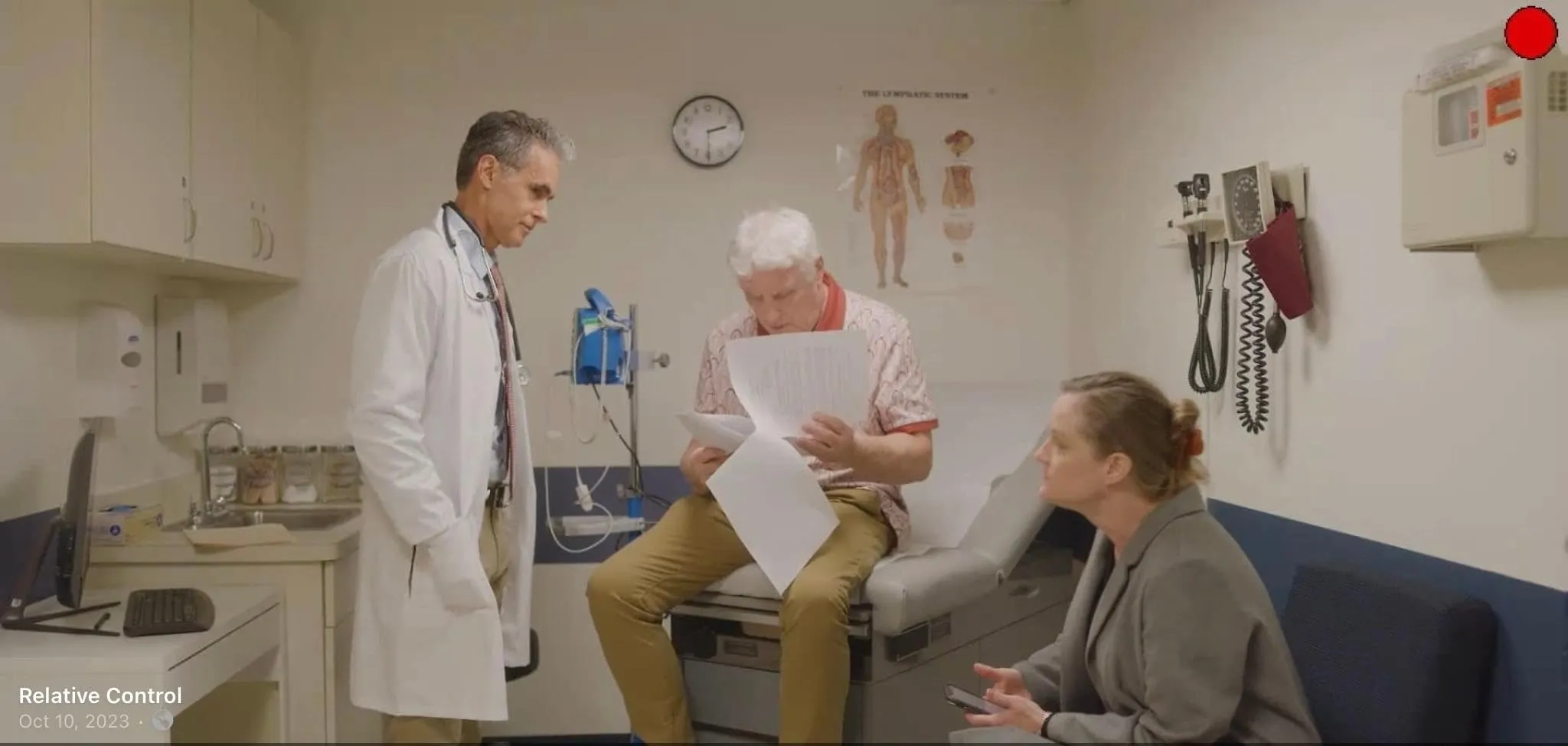The film “Relative Control” ushers audiences into the life of Sara, portrayed by Teri Polo, a woman ensnared in the familiar complexities of middle age. As a career-driven corporate lawyer, Sara finds herself at the confluence of escalating professional responsibilities and the deeply personal, often taxing, demands of family.
Her world is a tableau of the “sandwich generation,” where the pressures of caring for aging parents and a still-dependent adult son converge with the pursuit of her own ambitions. The narrative immediately signals an exploration into the societal scripting of women as primary caregivers and the arduous quest for equilibrium when life’s varied urgencies clamor for attention.
It presents itself as a light dramedy, yet beneath the surface, it sketches the contours of a profound, often unspoken, modern dilemma – one woman’s solitary effort to manage an overwhelming array of obligations.
A Cacophony of Claims
Sara’s existence is a study in escalating pressures, a daily navigation through a minefield of conflicting needs. Her aging parents present a significant source of this strain; her ex-police chief father, portrayed by Patrick McDade, exhibits a stubborn resistance to acknowledging his declining health, his days punctuated by self-induced crises often fueled by sensationalized television news and ill-advised purchases like a problematic motorized chair.
Alongside him, Sara’s mother, played by Alice Schaerer, recedes into the fog of forgetfulness, heightening the caregiving load that falls squarely on Sara, her sister having conveniently absented herself to Florida. Compounding this is her son, Eric (Ryan Saviano), pursuing a nascent career on the opposite coast, yet remaining tethered to her financially and emotionally, his intermittent returns for various emergencies a recurring motif.
Simultaneously, Sara’s legal career in mergers and acquisitions is at a critical juncture, with a high-stakes case demanding her acuity. These worlds do not merely coexist; they violently collide, creating a persistent, thrumming tension that the film suggests is an increasingly common, albeit frequently invisible, battle waged by many.
Figures in a Fraught Landscape
At the heart of this maelstrom is Sara, and Teri Polo’s performance provides a compelling anchor. She embodies Sara’s considerable stress and fierce determination with a nuanced portrayal that allows justifiable frustration and moments of quiet resentment to surface without souring into outright bitterness. The character remains sympathetic, a testament to Polo’s ability to telegraph resilience.
The supporting figures around Sara illuminate different facets of her predicament. Her parents are both sources of exasperated humor and profound worry. Her son represents a lingering responsibility that tests her titular need for control. At work, her assistant, Nicholas Delany, highlights Sara’s managerial shortcomings born of distraction; he seeks greater responsibility, yet she lacks the bandwidth for proper mentorship.
A fleeting romantic possibility with an ex-classmate doctor, Jeff Mark, underscores the personal life Sara has had to defer. These characters and their interactions, often tinged with a relatable, weary humor, effectively sketch the landscape of Sara’s isolation and the sparse, often inadequate, support systems available to her as she juggles her manifold duties.
Charting the Chaos: Form and Feeling
“Relative Control” opts for a narrative architecture built from a sequence of small, rolling crises, a structural choice that mirrors the fragmented, reactive nature of Sara’s daily life. This episodic approach can be effective in conveying the relentless barrage of demands she faces, offering moments of sharp recognition for anyone who has navigated similar terrain.
Yet, this fidelity to life’s untidiness sometimes translates to a diffusion of dramatic energy. The subplot involving Sara’s crucial work assignment, for instance, occasionally feels disconnected from the emotional core of her domestic struggles, its inherent drama not fully ignited.
Similarly, the romantic thread is too insubstantial to weave effectively into the main tapestry of her concerns. Consequently, while the film achieves a broad relatability, its emotional resonance can feel generalized.
The complexities of Sara’s bond with her father, for example, are more inferred than viscerally explored, blunting some potential for deeper poignancy. The resolution offered may strike some as a somewhat too-convenient smoothing of life’s rougher edges. The film capably depicts a particular, challenging stage of life, carried significantly by its central performance, presenting a recognizable journey through the turbulence of care, career, and compromised selfhood.
Relative Control was released digitally and on DVD on April 11, 2025, and is available for streaming on platforms such as Prime Video and Apple TV.
Full Credits
Director: Dafna Yachin
Writer: Charlene Davis
Producers and Executive Producers: Dafna Yachin, Jason Pinardo
Cast: Teri Polo, Patrick F. McDade, Alice Schaerer, Ryan Saviano, Nicholas Delany, Brian Anthony Wilson, Jeff Mark, Richard Lyntton, Erica Wong, Jordanna Hernandez
The Review
Relative Control
"Relative Control" offers a commendable and relatable depiction of the immense pressures facing the modern "sandwich generation," anchored by a strong, nuanced performance from Teri Polo. While it successfully captures the chaotic rhythm of a life stretched thin by familial and professional duties, its narrative often fragments, leaving key subplots underdeveloped and softening the potential for deeper emotional engagement. The film resonates with its portrayal of recognizable struggles, even if its ultimate resolution feels somewhat simplified.
PROS
- Teri Polo's compelling central performance.
- Relatable portrayal of "sandwich generation" challenges.
- Authentic moments of exasperated humor in family dynamics.
- Highlights societal pressures on female caregivers.
CONS
- Work and romantic subplots lack development.
- Emotional impact can be uneven and occasionally feels superficial.
- Narrative structure sometimes diffuses dramatic tension.
- The resolution may seem overly neat.
